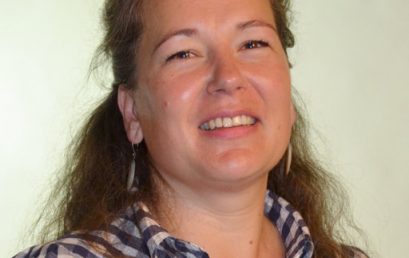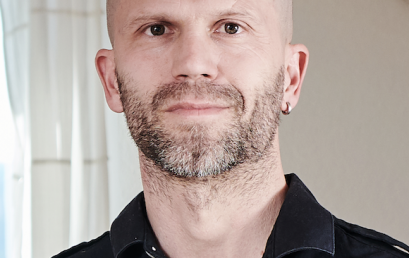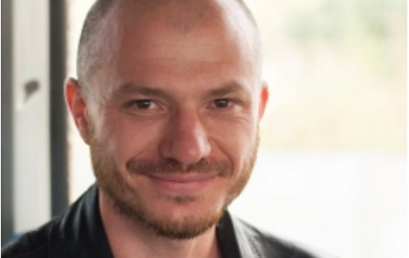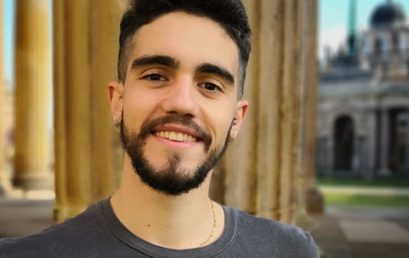“Mais à quoi pensent les parents ?” : le rôle des cognitions parentales dans la parentalité et le développement de l’enfant
“Mais à quoi pensent les parents ?” : le rôle des cognitions parentales dans la parentalité et le développement de l’enfant Dr. Bénédicte Mouton (chercheuse post-doctorante, Université Libre de Bruxelles) Abstract. Dans le champ de la parentalité, l’étude des comportements parentaux et des pratiques éducatives a été longtemps l’un des principaux objets de recherche, notamment […]
CeSCuP seminar: Exposure to ingroup past harm-doing vs past victimization events: the impact on the Lebanese civil war construals of violence and the role of ingroup identification (June 15th)
Exposure to ingroup past harm-doing vs past victimization events: the impact on the Lebanese civil war construals of violence and the role of ingroup identification Sarah Zahreddine (PhD Student, Université Libre de Bruxelles) & Assaad Azzi (Professor, Université Libre de Bruxelles) Abstract. Even decades after a conflict has been resolved, memories of the incident can […]
[ANNULÉ] Séminaire CeSCuP : Transnégativité, identification au genre, expression et bien-être : une analyse en méthodes mixtes auprès de personnes trans* vivant en Belgique (8 Juin 2021)
Séminaire CeSCuP : Transnégativité, identification au genre, expression et bien-être : une analyse en méthodes mixtes auprès de personnes trans* vivant en Belgique Emma Sarter (doctorante, UCLouvain) Abstract. Les Théories de l’Identité Sociale s’intéressent depuis plusieurs décennies aux conséquences de la perception de discrimination sur le bien-être des membres de groupes la subissant ainsi qu’aux […]
Séminaire CeSCuP : Le bruit de la conspiration : psychologie des croyances aux théories du complot (25 mai 2021)
Le bruit de la conspiration : psychologie des croyances aux théories du complot Pascal Wagner-Egger (Enseignant-Chercheur, Université de Fribourg, Suisse) Abstract. Qu’est-ce qu’une théorie du complot, pourquoi y croit-on, et quelles conséquences a le fait d’y croire ? Dans cette présentation de mon livre qui vient de paraître sur le sujet, je tenterai de […]
CeSCuP virtual seminar: It’s (a) Shame: The Effect of Poverty on Authoritarianism (April 27)
It’s (a) Shame: The Effect of Poverty on Authoritarianism Authors: Jasper F. Neerdaels1, Christian Tröster1, and Niels Van Quaquebeke1,2 1 Kühne Logistics University, Germany 2 University of Exeter, United Kingdom Abstract. Poverty is a popular explanation for authoritarianism, yet the literature on the topic is inconclusive, often not finding the effect and also being […]
Lutter contre la radicalisation par l’argumentation et la rhétorique : le projet “Polarisation” (11 mai)
Lutter contre la radicalisation par l’argumentation et la rhétorique : le projet “Polarisation” Lucie Donckier (doctorante, Groupe de Recherche en Rhétorique et Argumentation Linguistique, ULB) Abstract. Le projet “Polarisation” du Groupe de recherche en Rhétorique et Argumentation Linguistique (GRAL) s’inscrit dans le cadre d’un projet de la FWB de lutte contre les radicalismes et leurs […]
CeSCuP virtual seminar – The Similarity Index: A simple deductive measure to evaluate the empirical adequacy of a theoretical construct (March 30th)
The Similarity Index: A simple deductive measure to evaluate the empirical adequacy of a theoretical construct Authors: Adrian Stanciu (GESIS-Leibniz Institute for the Social Sciences, Mannheim; Jacobs University Bremen, Bremen), Erich H. Witte (Hamburg University, Hamburg), and Frank Zenker (Bogazici University, Istanbul) Abstract: Formal measures of effect size (ES) quantify the impact of […]
Séminaire virtuel CeSCuP – Justification de la taille d’échantillon et analyse de puissance a priori (mardi 23 mars)
Justification de la taille d’échantillon et analyse de puissance a priori Cyril Forestier (PhD, Laboratoire Motricité, Interactions, Performance, Le Mans Université) Abstract. La conception d’une étude empirique implique nécessairement une estimation de la taille de l’échantillon qui sera recruté. A ce jour, différentes méthodes existent pour estimer et justifier la taille d’un échantillon. Parmi […]


![[ANNULÉ] Séminaire CeSCuP : Transnégativité, identification au genre, expression et bien-être : une analyse en méthodes mixtes auprès de personnes trans* vivant en Belgique (8 Juin 2021) [ANNULÉ] Séminaire CeSCuP : Transnégativité, identification au genre, expression et bien-être : une analyse en méthodes mixtes auprès de personnes trans* vivant en Belgique (8 Juin 2021)](https://cescup.ulb.be/wp-content/uploads/2021/06/Emma-Sarter-409x258.jpg)




